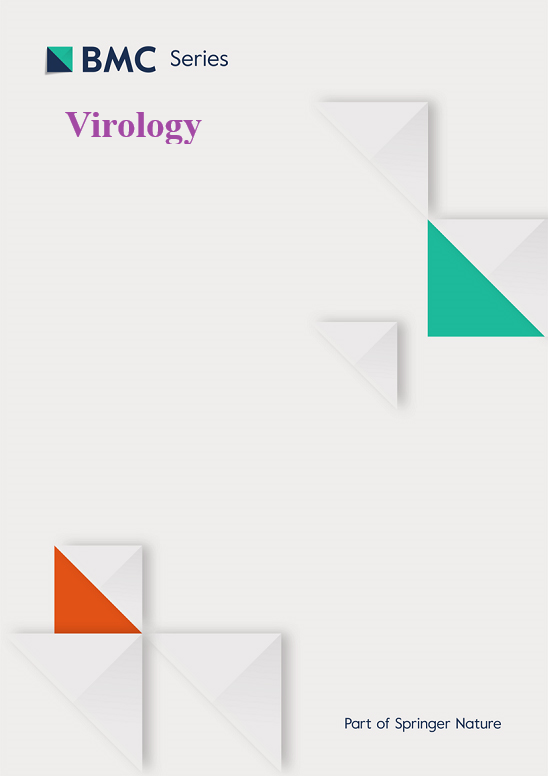中和登革热病毒单克隆抗体:临床前和临床发展的综述
IF 2.4
3区 医学
Q3 VIROLOGY
引用次数: 0
摘要
登革热病毒(DENV)是一项重大的全球卫生挑战,在2024年造成760多万例报告病例。中和性单克隆抗体(nmab)已成为解决疫苗局限性和抗病毒药物缺乏的有希望的治疗方法,但其发展因病毒多样性、“呼吸”动力学和抗体依赖性增强(ADE)而复杂化。本综述旨在绘制和合成针对DENV的nmab的证据,总结它们的表位、机制、血清型覆盖、中和效力和发展现状。方法:我们检索PubMed(截至2025年6月)关于nmab在体内或体外中和DENV的研究。纳入需要有关中和活性的原始数据。数据提取包括抗体来源、表位、效价、ADE风险和临床进展。结果共纳入56项研究,涵盖30多个nmab。融合环导向抗体(如3G9, E53)表现出广泛的反应性,但经常介导ADE,除非fc修饰。e -二聚体表位(EDE)抗体(A11, B7, C8, C10)识别四元表位具有高的体外效力,尽管体内保护和ADE避免的证据仍然有限。结构域iii导向的抗体(如m366.6, 1C19)显示出血清型跨越活性,而其他抗体如2D22或DENV-290则表现出有效的类型特异性中和。几种候选抗体在动物模型中显示出有效性,两种人类抗体VIS513和AV-1已进入临床评估阶段,其中VIS513已完成i期试验。结论单抗是一种很有前景的登革热治疗辅助药物,但需要谨慎的表位选择和Fc工程来平衡效力和安全性。持续的临床前和临床评估对于推进这些候选药物的治疗应用至关重要。本文章由计算机程序翻译,如有差异,请以英文原文为准。
Neutralizing monoclonal antibodies against dengue virus: a scoping review of preclinical and clinical development
Background
Dengue virus (DENV) is a major global health challenge, causing over 7.6 million reported cases in 2024. Neutralizing monoclonal antibodies (NmAbs) have emerged as promising therapeutics to address the limitations of vaccines and lack of antivirals, but their development is complicated by viral diversity, “breathing” dynamics, and antibody-dependent enhancement (ADE).
Objectives
This scoping review aimed to map and synthesize evidence on NmAbs targeting DENV, summarizing their epitopes, mechanisms, serotype coverage, neutralization potency, and development status.
Methods
We searched PubMed (to June 2025) for studies characterizing NmAbs with in vitro or in vivo DENV neutralization. Inclusion required primary data on neutralizing activity. Data extraction included antibody origin, epitope, potency, ADE risk, and clinical progress.
Results
Fifty-six studies were included, covering more than 30 NmAbs. Fusion loop–directed antibodies (e.g., 3G9, E53) display broad reactivity but frequently mediate ADE unless Fc-modified. E-dimer epitope (EDE) antibodies (A11, B7, C8, C10) recognize quaternary epitopes with high in vitro potency, though evidence for in vivo protection and ADE avoidance remains limited. Domain III–directed antibodies (e.g., m366.6, 1C19) show serotype-spanning activity, while others such as 2D22 or DENV-290 exhibit potent type-specific neutralization. Several candidates demonstrate efficacy in animal models, and two human antibodies, VIS513 and AV-1, have advanced to clinical evaluation, with VIS513 completing Phase 1 trials.
Conclusions
NmAbs offer a promising adjunct to dengue care but require careful epitope selection and Fc engineering to balance potency and safety. Continued preclinical and clinical evaluation is essential to advance these candidates toward therapeutic use.
求助全文
通过发布文献求助,成功后即可免费获取论文全文。
去求助
来源期刊

Virology
医学-病毒学
CiteScore
6.00
自引率
0.00%
发文量
157
审稿时长
50 days
期刊介绍:
Launched in 1955, Virology is a broad and inclusive journal that welcomes submissions on all aspects of virology including plant, animal, microbial and human viruses. The journal publishes basic research as well as pre-clinical and clinical studies of vaccines, anti-viral drugs and their development, anti-viral therapies, and computational studies of virus infections. Any submission that is of broad interest to the community of virologists/vaccinologists and reporting scientifically accurate and valuable research will be considered for publication, including negative findings and multidisciplinary work.Virology is open to reviews, research manuscripts, short communication, registered reports as well as follow-up manuscripts.
 求助内容:
求助内容: 应助结果提醒方式:
应助结果提醒方式:


